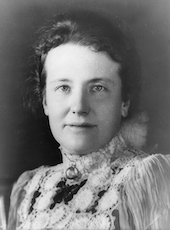|
|
Edith Kermit Carow Roosevelt |
||||||||||||
|
|
|
||||||||||||
|
Websites |
|||||||||||||
|
Papers/letters collections |
Manuscripts for: Edith Roosevelt Letter from Theordore Roosevelt to Edith Kermit Carow Roosevelt |
||||||||||||
|
Historical sites |
|||||||||||||
|
Fascinating details |
|
Return to First Lady Main Page.
test26

